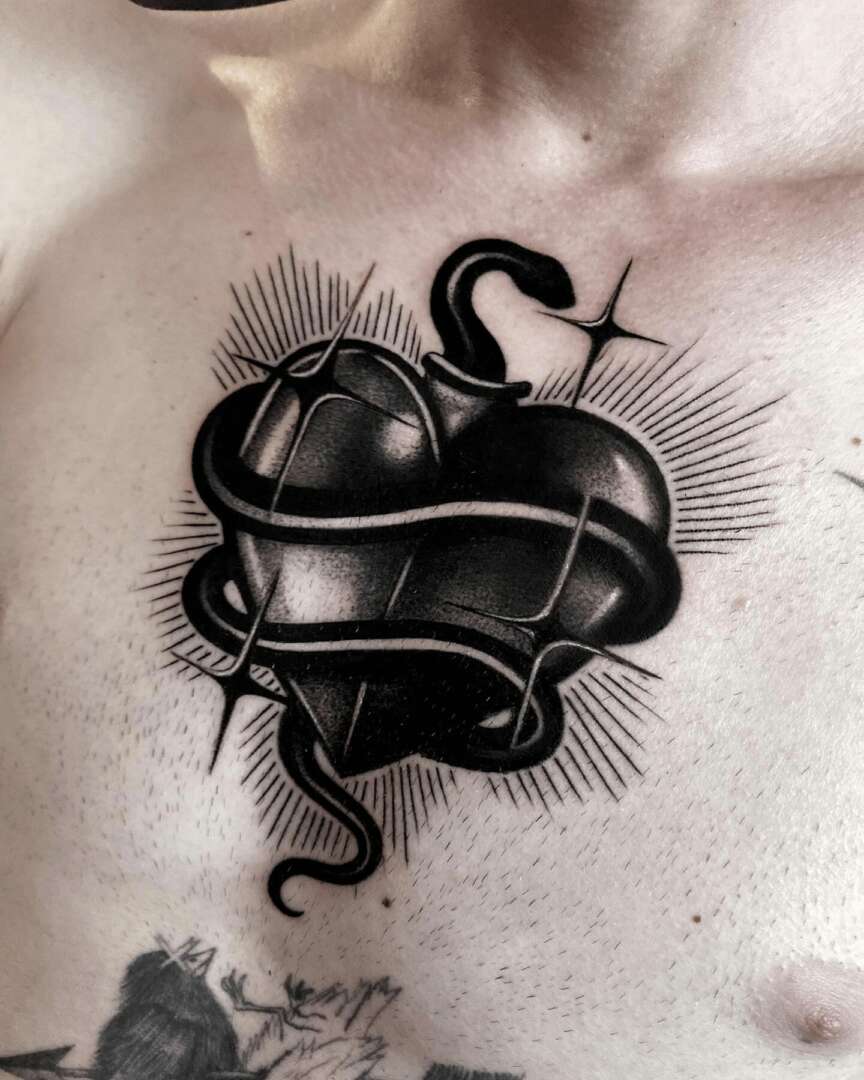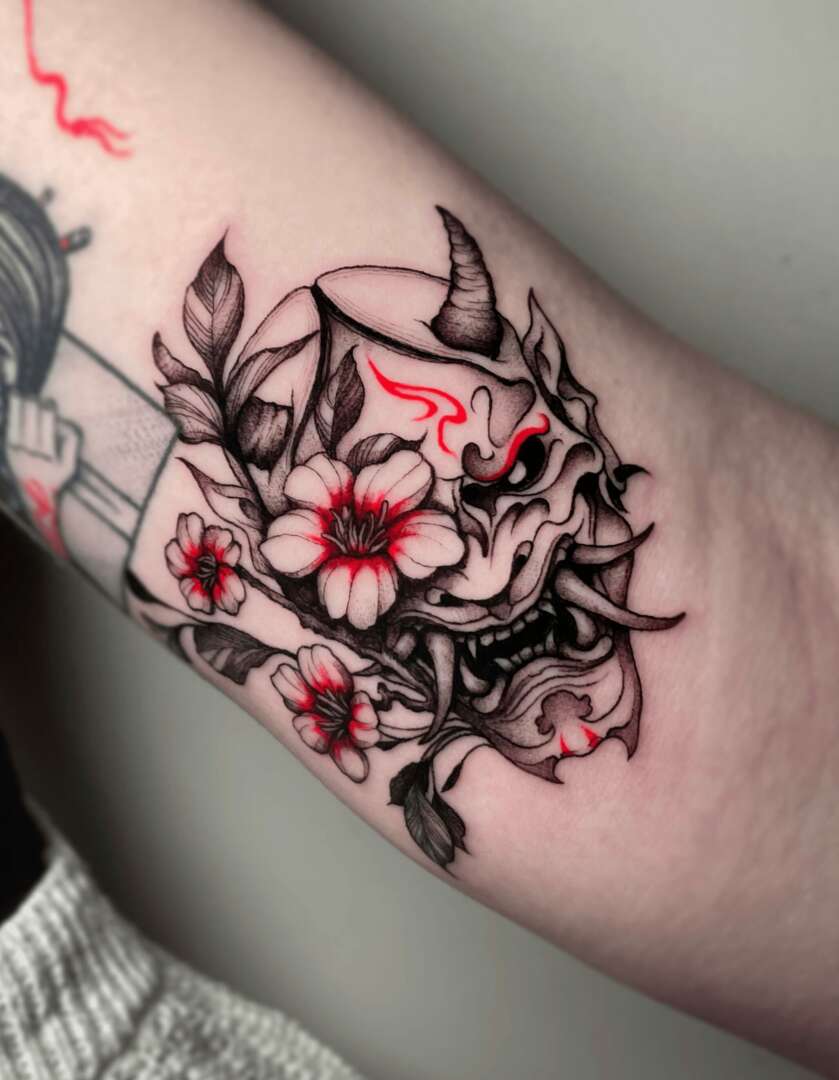We caught up with the brilliant and insightful Nikol Sedef a few weeks ago and have shared our conversation below.
Alright, Nikol thanks for taking the time to share your stories and insights with us today. Earning a full time living from one’s creative career can be incredibly difficult. Have you been able to do so and if so, can you share some of the key parts of your journey and any important advice or lessons that might help creatives who haven’t been able to yet?
In the tattoo industry, nothing happened overnight for me. I learned to tattoo at a studio where I worked as an assistant in 2017. I actually started tattooing during a time when tattoos were rising in popularity on social media. And for me, the most important point has always been to create ‘unique’ designs. Since I knew I would eventually learn how to tattoo, I focused on finding my desired style. Initially, I tattooed my friends and their circles, drawing the designs they wanted in my own style. Although these tattoos helped me improve, I asked them to either buy my supplies or pay whatever amount they felt was appropriate. After a while of improving myself this way, I experienced some negative things at the studio where I was an assistant and had to leave. Despite being very scared at first, I bought my own tattoo machine and supplies with my family’s support and started tattooing at home seven years ago. In the early days, there were times when I would tattoo all night for just 100Turkish Liras (during 2017-2018, 100 TL was approximately between $16 and $29 USD, depending on the specific time of the year.). I started to make a little money this way, but the best time for me to start earning money was when I shared my small designs called ‘be different; be unique.’ I was drawing many small designs the size of a coin, always including ‘eyes’ in these small designs, and they were small drawings like roses, snakes, pizza, planets, milk cartons, and character sketches from the same artist. Every time I shared these designs, I posted 10 of them and mentioned that I would do them for a very affordable price. People were eager to get small and special designs for 100 TL. When I sold a design, I would announce that it was sold, making the designs even more desirable. I guaranteed selling 10 designs in an hour and making 1000 TL. Because they were small, I could take up to six appointments in a day, which allowed me to make a lot of tattoos to share and also earn money. Creating the designs took very little of my time, so I would share and sell at least 20 designs each week. I earned through volume. This way, I was able to tattoo hundreds of people, effectively promoting myself, making a lot of tattoos, and earning good money in a short time. This is how I started to make a living entirely from tattooing.
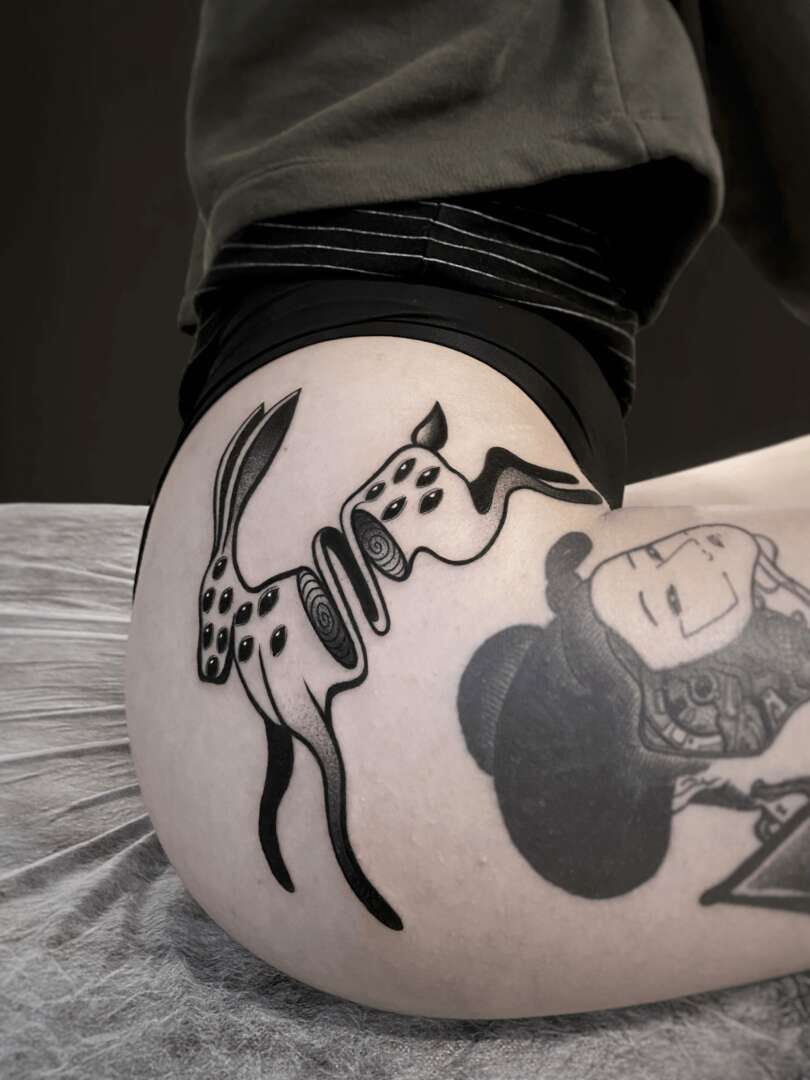
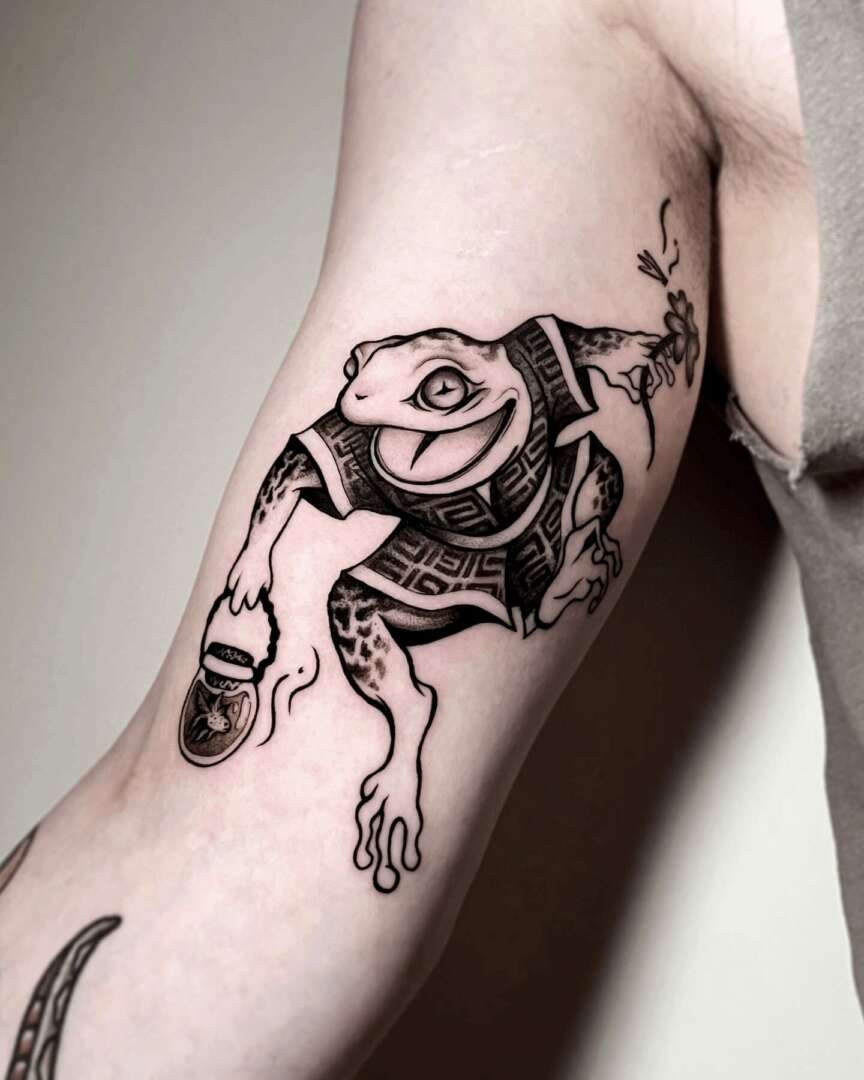
Nikol, love having you share your insights with us. Before we ask you more questions, maybe you can take a moment to introduce yourself to our readers who might have missed our earlier conversations?
I have always had an interest in tattooing. As a child, I spent summers at our holiday home doing temporary tattoos, although at that time I didn’t realize it could be a profession. In 2017, I had just graduated from university and knew for sure that I didn’t want to pursue fashion and textile design. My partner at the time bought me a tattoo machine set online, and I made my first attempts with that equipment. It was very challenging, and I didn’t think I could continue. I understood that if I needed to learn something, I had to enter a studio and learn it from a master of the craft. That’s exactly what I did, and I was hired right away at the first studio I went to. Two weeks later, I did my first tattoo on a person and immediately realized that this would be my passion.
As a person, I am very versatile, with many talents, and my preferences can change frequently. This mentality translated into my approach to tattooing. I learned the craft with this mindset. I studied and mastered various techniques: colorful tattoos, blackwork, linework, dotwork, cover-ups, using magnum needles, single needles, scar cover-ups, small tattoos, large tattoos, using both coil and rotary machines, and both cartridge and regular needles. I took the time to learn everything thoroughly. This allowed me to blend different styles and techniques into my unique approach to tattooing.
People don’t love the same things forever; trends change constantly, and my personality prevents me from staying in one place for too long. Mastering all these techniques enables me to adapt easily and be more comfortable in my creative space. My dedication to learning different techniques, especially cover-up tattoos, has allowed me to transform many old tattoos that people were unhappy with into something completely new and beautiful.
Given the times we live in, our work is often created primarily for social media, unfortunately. I constantly try to remind myself why I love my job so much, and the answer is always ‘the happiness of my clients.’ Making someone happy is a truly rewarding feeling, and having many skills allows me to respond positively to any request they might have. It’s very special to connect with people through a shared art form, especially those you might not ordinarily meet. Taking my work beyond the borders of my home country and doing it internationally is incredibly gratifying.
The emphasis I place on being ‘unique’ and my ability to adapt to any situation has allowed me to grow significantly in my craft.
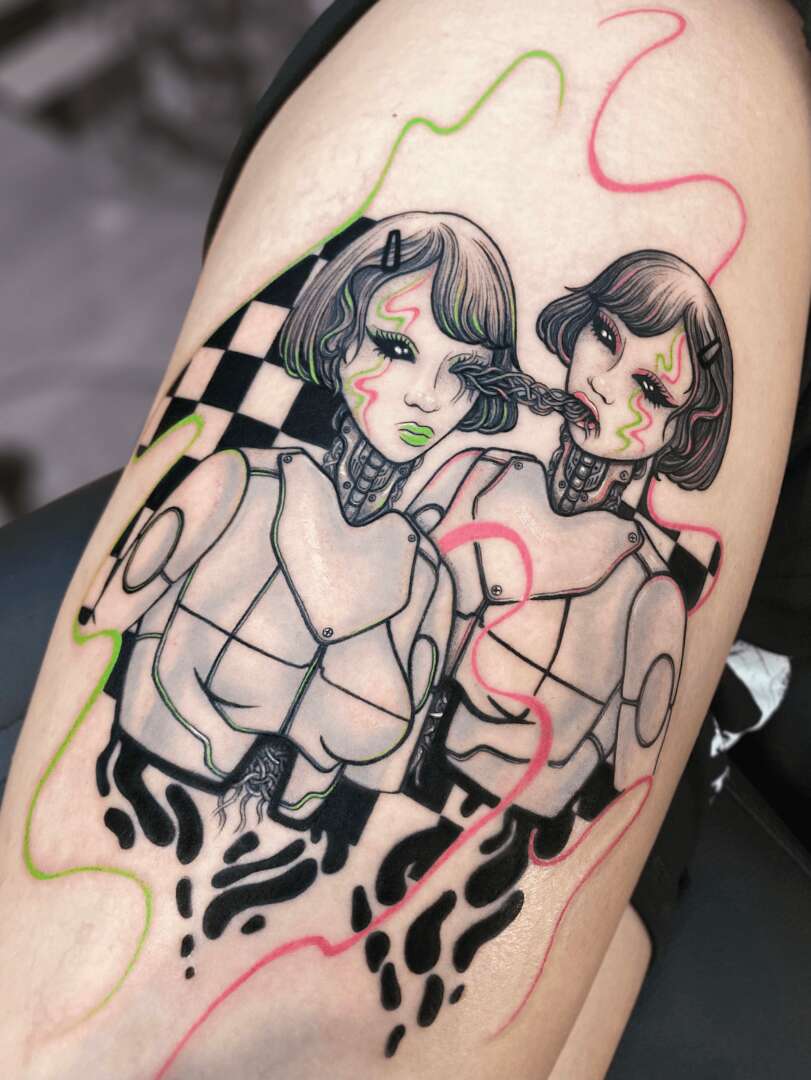
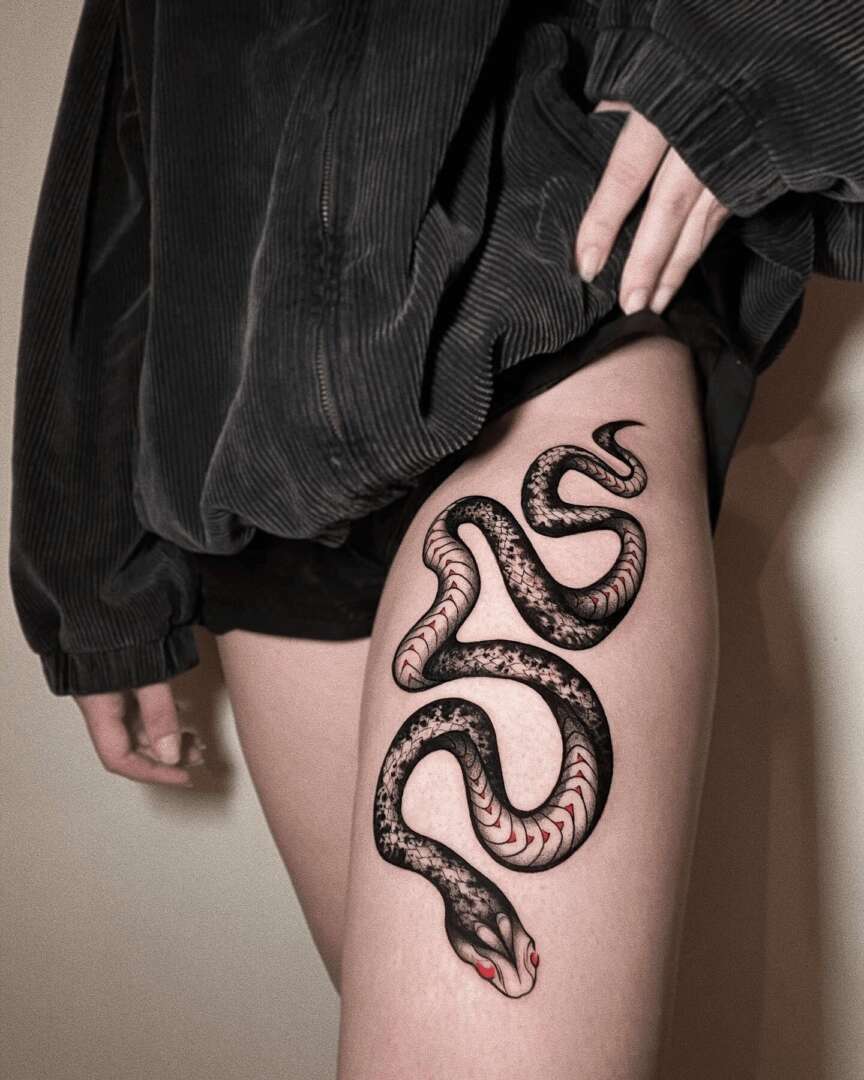
For you, what’s the most rewarding aspect of being a creative?
As I mentioned before, the greatest reward in my profession is ‘making people happy.’ Sometimes, people come in for their first tattoo at 18, and sometimes they come in for their first tattoo over the age of 50. They can be very nervous, and seeing their relief and smiles after the session is very gratifying. Cover-up tattoos are particularly enjoyable in this regard because clients often think their old tattoos are beyond repair. When these are completely transformed into something new, seeing the weight lifted off their shoulders is incredibly rewarding.
The biggest difference between tattooing and other art forms is the direct interaction with your client. You experience all the emotions together. After a 12-hour session, you can develop very special friendships with these clients. People sometimes travel long distances just to get a tattoo from you. One client of mine sold tomatoes all summer to afford a plane ticket just to come and get a tattoo from me. I don’t know what could be more rewarding than these beautiful people.
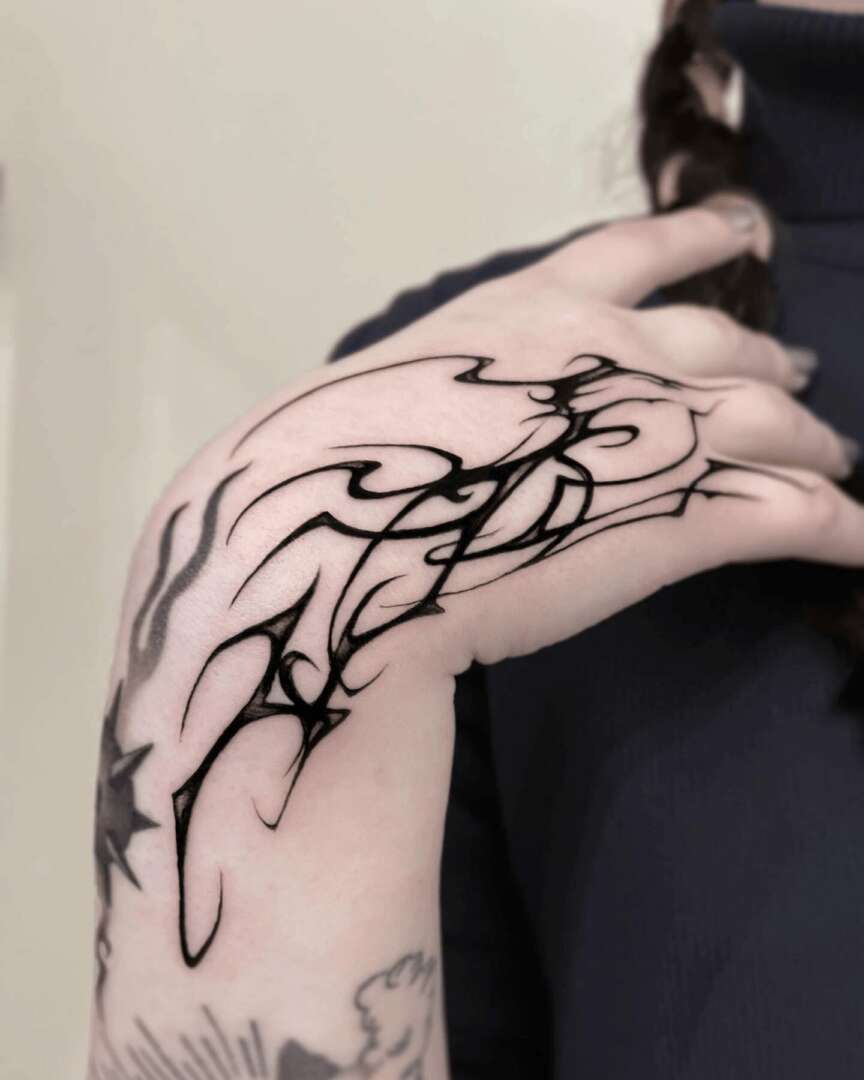
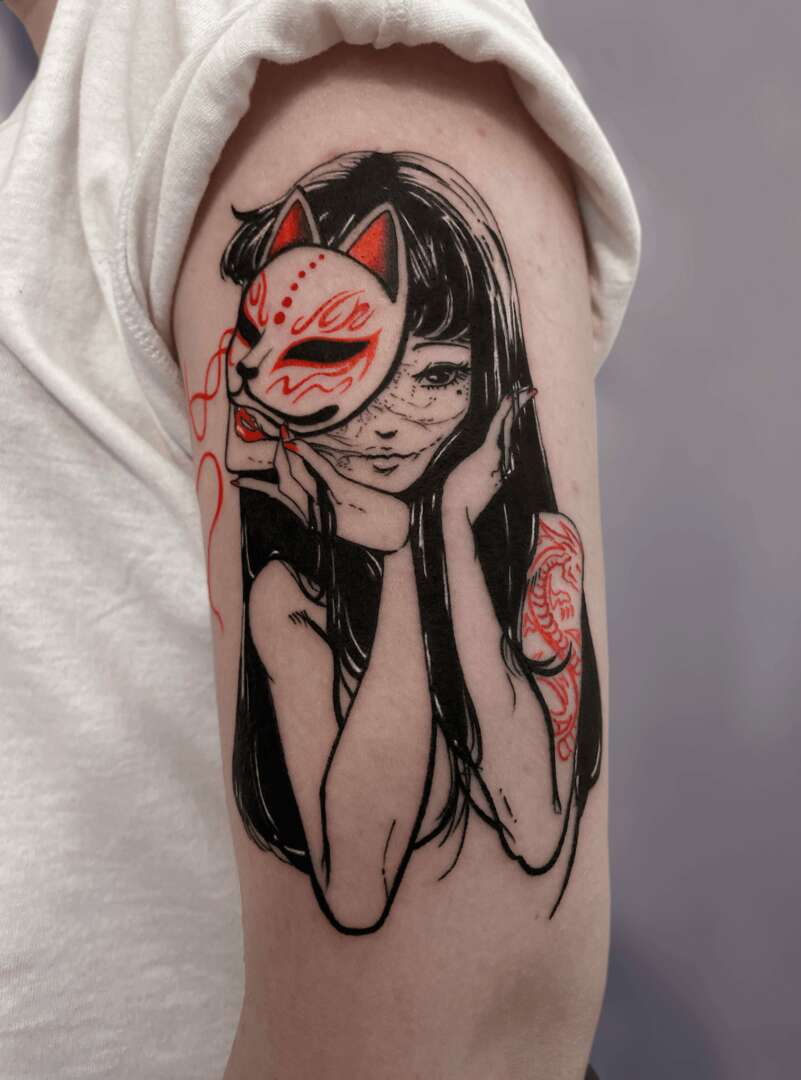
What can society do to ensure an environment that’s helpful to artists and creatives?
Expecting something from others can be a bit exhausting in my opinion. Because when you have such expectations and people cannot give you their time, you might feel excluded. I believe that artists need to support each other a bit more. Usually, one side tries to prove that they are better than the other, which makes their opinions very sharp. As artists, we often see each other on social media, and it feels strange to me that people in the same profession act so distant from each other. There are thousands of very talented artists with very few followers, often because artists do not support each other. As a result, people tend to produce ‘trendy’ content to secure their place on social media.
If we, as artists, could share each other’s work more, pass on jobs to one another, and not withhold information, we could be stronger. I understand that this is, to some extent, a competition, but in my view, the more you give out, the more you receive in return. The resources, techniques, and admiration should not be kept secret.
Contact Info:
- Website: https://nikolsedef.com
- Instagram: https://instagram.com/nicolesedef
- Facebook: https://m.facebook.com/nicolesedeftattoo/
- Linkedin: https://tr.linkedin.com/in/nikol-sedef-2aa890123
- Twitter: https://twitter.com/nicolesedef
- Other: Tiktok: nicolesedef
